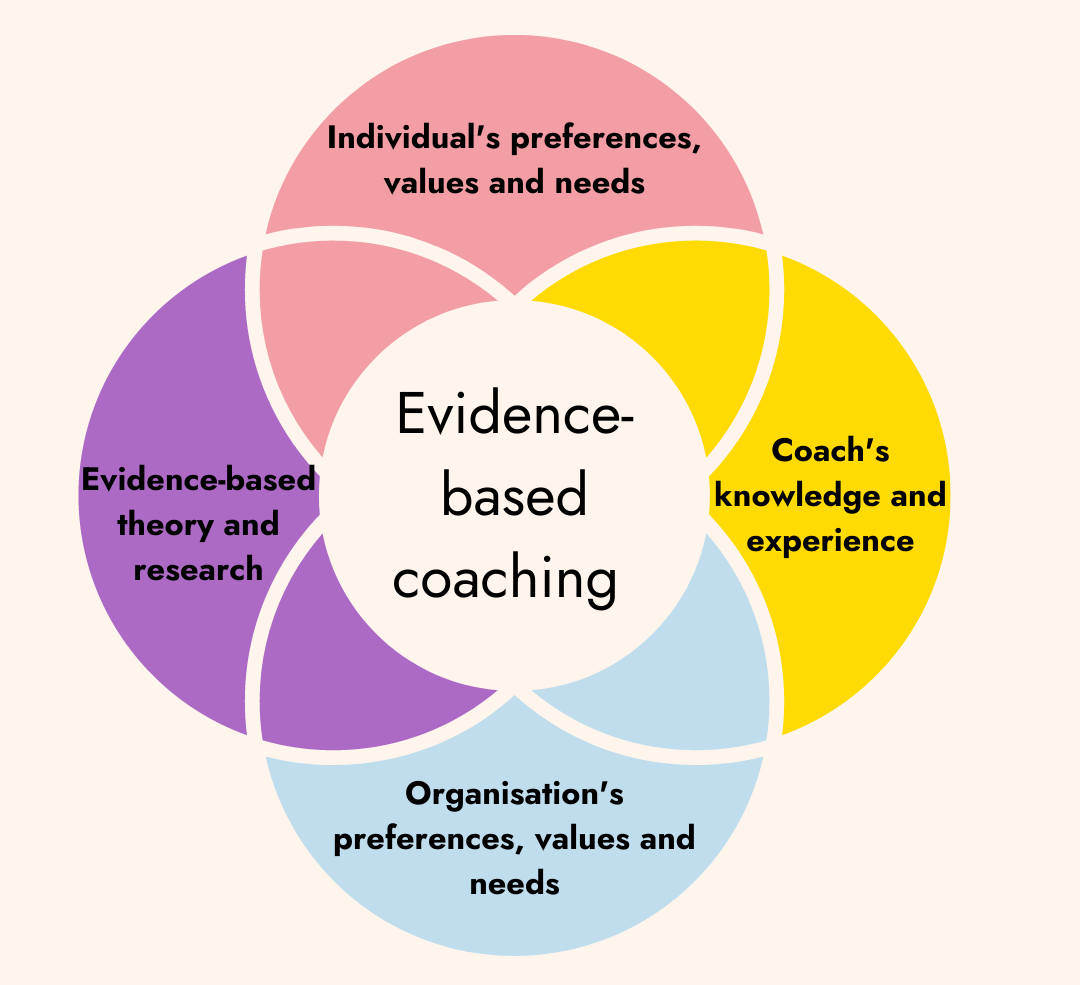All about that (evidence) base
As a psychologist and a coach, as well as someone who has spent the majority of their career working in scientific research, evidence-based techniques are a fundamental component of my coaching and training programmes. But what does this actually mean in practice?
Let’s start with what evidence-based coaching is NOT. It’s not an over-reliance on frameworks and theories. Nor is it a rigid approach that only follows one methodology. It's definitely not a de-humanised or clinical approach and it's not an overly intellectualised intervention either.
So what is it? I put together this handy diagram which for me encapsulates the most important parts of an effective coaching approach. When these all combine and align, we have a powerful combination that will give ideal conditions for really successful coaching outcome

- The individual - what are their unique needs, strengths, values and motivations?
- The organisation - if you're coaching within a company, what measures of success are drivers, and what behavioural changes are important at the systemic level?
- The coach - what experience, preferences, skills and knowledge does the coach themselves bring into the equation?
- The evidence - how can the knowledge base of previous work in the coaching area and our understanding of human behaviour be leveraged to produce better outcomes?
These 4 factors, are for me, equally important, and if you're looking at working with a coach within your organisation, it's really important to find out how they address each of these separate needs, and also how they propose to align them to create win-win coaching outcomes.

